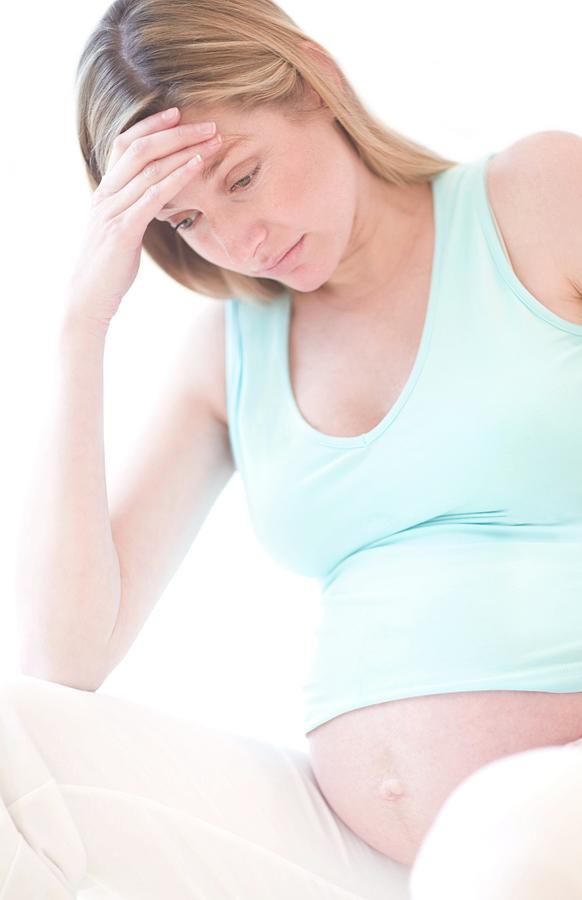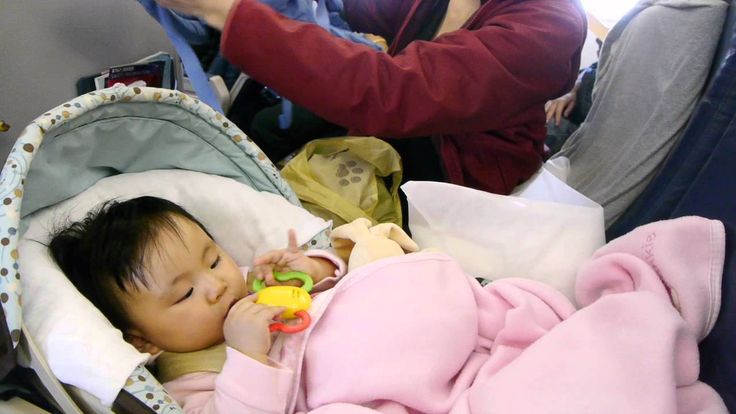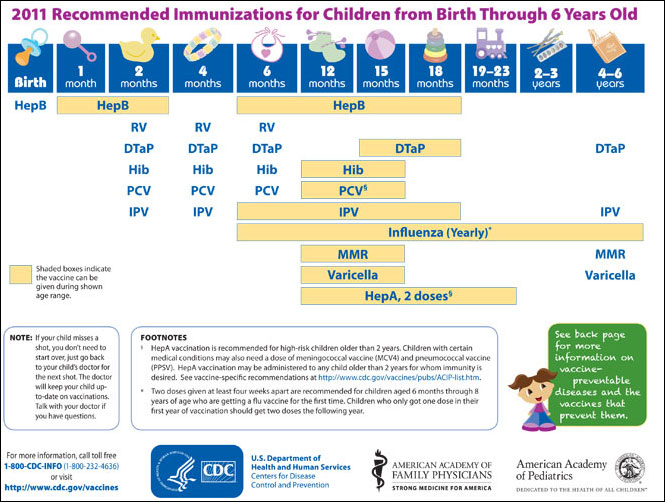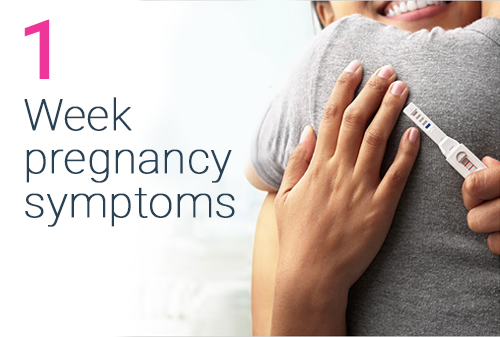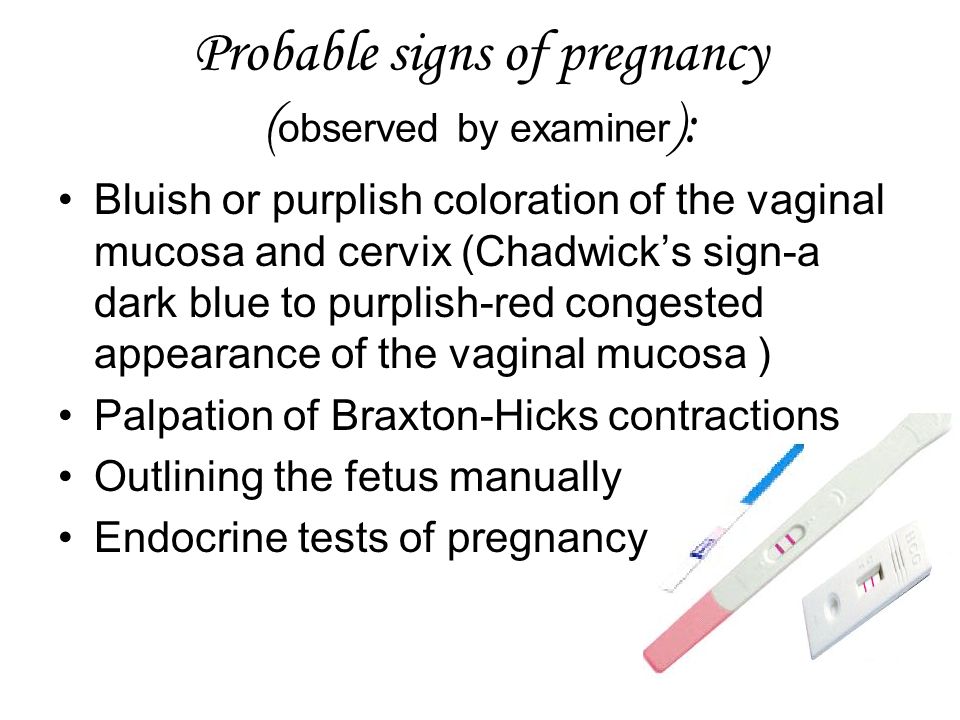Pregnancy after delivery without menstruation
An Oh Baby Interview — Oh Baby
Many women are often surprised to learn that after having a baby, you can become pregnant again without actually menstruating first. This is because about 60% of women will ovulate before their first period postpartum. However, only about half of these women will have a long enough luteal phase to sustain a pregnancy after this first ovulation. The other 40% will have some sort of bleeding to indicate their first postpartum ovulation is approaching. Due to the wide variations of returning fertility, it can be very difficult to detect when ovulation occurs for the first time after giving birth.
So, what are your chances of conceiving?
Lactational amenorrhea is the suppression of a menstrual cycle due to the breastfeeding hormone, prolactin. While there are exceptions, exclusively breastfeeding on-demand both day & night, without using of bottles, pumping, or pacifiers usually suppresses fertility until baby starts solids. When these criteria are met, your chances of conceiving before first foods are introduced is about 2%, which is lower than the risk of a fertile woman conceiving using either hormonal birth control pill (8%) or male condoms (15%).
Certain practices have shown to extend lactational amenorrhea, including:
frequent nursing
lying down when breastfeeding
providing baby access to comfort nursing
co-sleeping at night
napping with baby
skin-to-skin
babywearing
keeping baby close
Fertility Awareness Method postpartum
Before having kids myself, I practiced the Fertility Awareness Method (FAM). It proved so reliable for me that it was the only method of ‘birth control’ (pregnancy avoidance) my husband and I used. With FAM I was able to closely monitor my fertility signs to both avoid pregnancy and then successfully conceive after we decided to begin trying.
The 3 main fertility signs to monitor are cervical mucus, basal body temperature, and cervical position. However, these can prove much more challenging to observe prior to your cycle returning after having a baby. Before your first period postpartum your hormones still "cycle" and fluctuate as they gear up for ovulation. Eventually they finally surge and drop enough for ovulation, then menstruation to occur. These fluctuations can cause seemingly fertile cervical mucus for several months without actually being fertile yet. Temperature reading are done first thing when you wake up in the morning. Although they're no longer accurate if you experience sleep disturbances, which is usually the reality for most mothers with young children. As for cervical positioning, it can feel different after having a baby and may be difficult to monitor until your cycle returns and you can familiarize yourself with your ‘new normal’.
An interview with Ashley Chea
Ashley Chea and I first met at an Ergobaby event in 2017. We each had our daughters with us and they were both 6 months old, born just days apart from each other. When I saw her at the same Ergo event this year, she shared that she was pregnant again with her third baby and that she conceived before the return of her first period postpartum. She was breastfeeding her 9 month old at the time, without the use bottles or pacifiers. She also slept with her baby and regularly wore her in a carrier as well.
We each had our daughters with us and they were both 6 months old, born just days apart from each other. When I saw her at the same Ergo event this year, she shared that she was pregnant again with her third baby and that she conceived before the return of her first period postpartum. She was breastfeeding her 9 month old at the time, without the use bottles or pacifiers. She also slept with her baby and regularly wore her in a carrier as well.
How did you realize you were pregnant and how far along were you when you found out?
I didn't realize until I was about 4 months pregnant. I thought I was dying because I kept having migraines and feeling really sick. I went to the doctor to get an MRI and he said I was pregnant, not dying of a brain tumor like I thought. (I kept having headaches and getting dizzy, which is why I asked for the MRI.)
How old was your youngest when you became pregnant? Were you breastfeeding at that point?
My youngest was 1 year old when I found out I was pregnant, 13 months to be exact.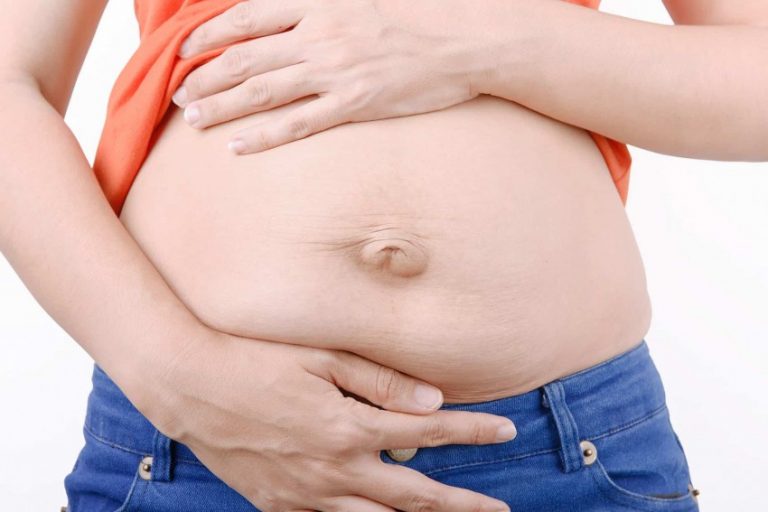 I was still breastfeeding her and had no cycle, so it was a complete surprise.
I was still breastfeeding her and had no cycle, so it was a complete surprise.
Before your pregnancy was confirmed, did you have a suspicion?
Complete surprise for me because we weren't using contraceptives but we weren't trying to make a baby. I assumed that I was safe from getting pregnant because I was breastfeeding and had no cycle. That clearly isn't accurate.
Does this pregnancy feel quite different than your previous pregnancies?
It has been completely different from my other two pregnancies. I was sick morning and night until about 5 months. I started having severe pelvic pains early on and haven't been able to work out/exercise much at all. This has been my laziest pregnancy. I normally work out 5 times a week while pregnant up until the day I give birth. This time I have had to take it really slow and can barely go on walks without severe pelvic pain and pressure. It has been a very humbling experience for sure.
Prior to your own experience did you know that it was possible to become pregnant before your first period returned postpartum?
I knew that it was a small possibility but researched and it seemed rare. Especially if you aren't attempting to get pregnant (meaning avoiding that part of intercourse). The pull out method is obviously not a guarantee but I really thought it would work. We used the same method and our first two are seven years apart. So I was extremely surprised when I found out I was pregnant with my third.
{Note from Carley: Full transparency, this is the method my husband and I use too. I'm currently 20 months postpartum without the return of my cycle and I peed on a pregnancy test immediately after reading Ashley's story. As in, packed the kids into their car seats and drove directly to the store. (It was negative.)}
Thank you so much for sharing Ashley! You can find Ashley on Instagram at @watermeloneggrolls and her blog.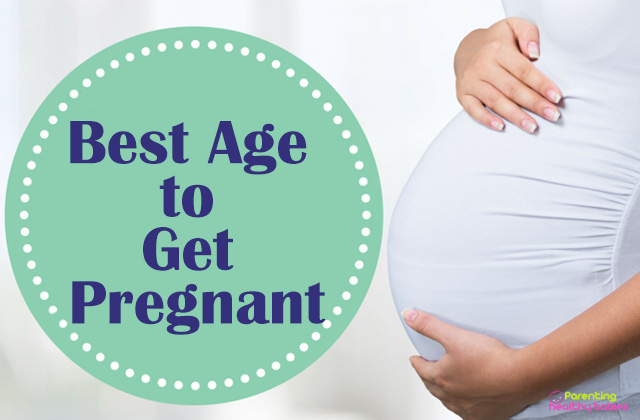
Pregnancy after birth: Can you get pregnant right after having a baby?
You may not realize how easy it can be to get pregnant after you've just had a baby, and there are some misconceptions out there about how long it takes for your fertility to return post-baby. Here's what you need to know about your fertility postpartum, and why most major health organizations recommend waiting 12 to 18 months after giving birth to start trying to conceive again.
Can you get pregnant right after having a baby?
You can get pregnant in as little as three weeks after giving birth, even if you're breastfeeding or don't have your periods back yet. To prevent pregnancy after you have your baby, you have to use birth control every time.
When will your period return after giving birth?
You can get your period again from a month to over a year after having a baby. This depends largely on how you're feeding your baby, since breastfeeding typically temporarily stops ovulation (and thus can delay your period's return).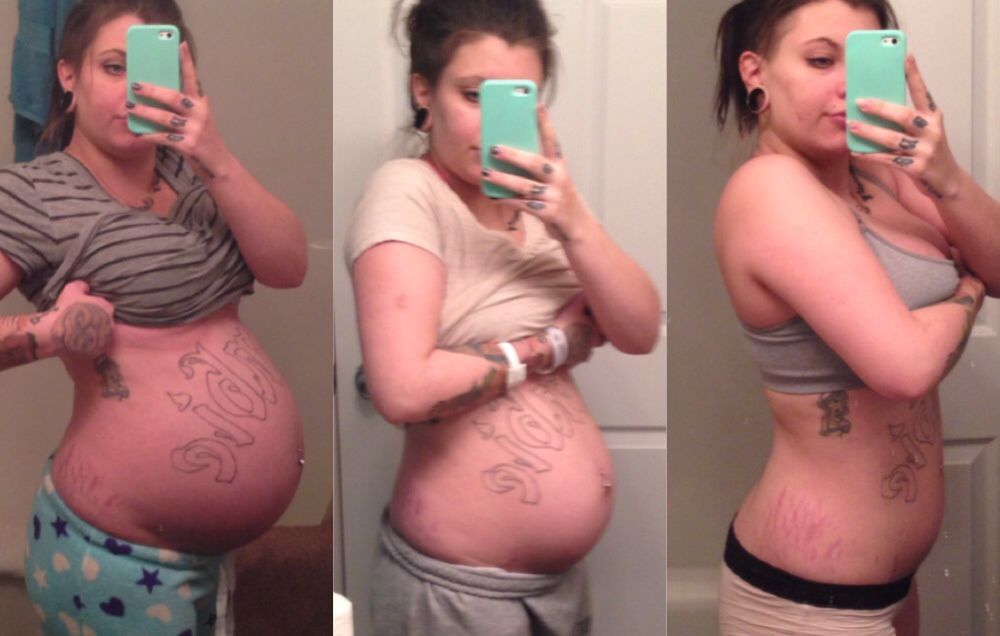 If you're formula-feeding, your period likely will return within six to eight weeks after giving birth. If you're exclusively breastfeeding, it might be several months to a year before you get your period again.
If you're formula-feeding, your period likely will return within six to eight weeks after giving birth. If you're exclusively breastfeeding, it might be several months to a year before you get your period again.
Can you get pregnant before your first period arrives?
You can get pregnant before you have your first period, and many unplanned pregnancies happen just that way.
Here's why: You're fertile around the time you ovulate, and you ovulate about 14 days before you get your period. Breastfeeding can temporarily stop your body from ovulating for a few months postpartum (more on that later), but if you aren't breastfeeding, you can ovulate within just a few weeks after giving birth.
Can you get pregnant while breastfeeding?
Yes, you absolutely can get pregnant while breastfeeding. Breastfeeding typically temporarily stops your body from ovulating (and thus keeps you from getting pregnant), but this is most reliable only if you're exclusively breastfeeding with no more than four to six hours between feeds.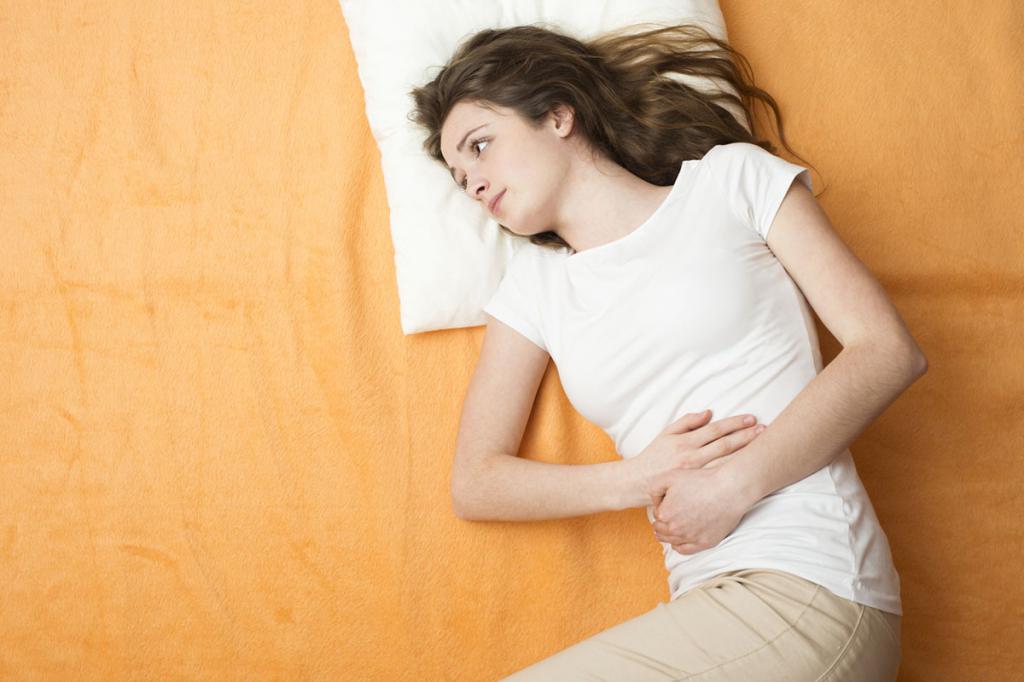 And by six months postpartum – when your baby is eating more solids and sleeping longer at night – breastfeeding can no longer be used as birth control. (Same goes if your period comes back before then.)
And by six months postpartum – when your baby is eating more solids and sleeping longer at night – breastfeeding can no longer be used as birth control. (Same goes if your period comes back before then.)
If you're still breastfeeding eight or 10 months postpartum, for example, you can get pregnant if you're not using other forms of contraception. Some women are fertile again much more quickly, and others don't have their fertility return until they completely wean.
To avoid a surprise pregnancy, many healthcare providers suggest that you use additional birth control methods while you're breastfeeding. At your six-week postpartum checkup, your provider may also ask which method of birth control you're using, but if you've already had unprotected sex, it may be too late.
What are the risks of getting pregnant soon after giving birth?
Growing a baby and giving birth, whether vaginally or via C-section, is hard on your body, and it needs ample time to recover before you get pregnant again.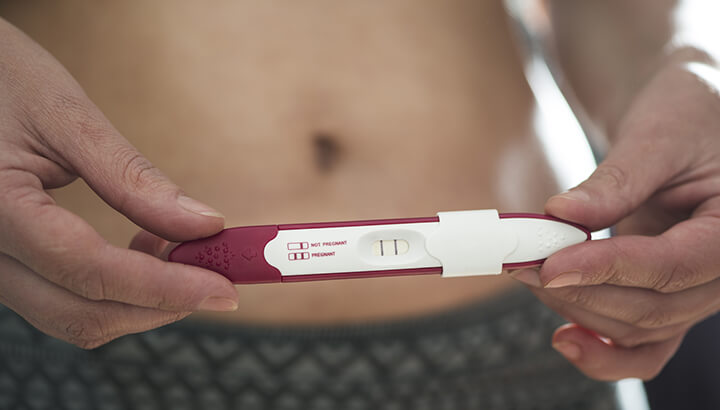 Some experts also believe that having children too close together makes it more difficult for your body to rebuild its stores of many nutrients, including folate and iron, which are crucial for development. That's why getting pregnant again too soon comes with some serious health risks for you and your next baby. These risks include:
Some experts also believe that having children too close together makes it more difficult for your body to rebuild its stores of many nutrients, including folate and iron, which are crucial for development. That's why getting pregnant again too soon comes with some serious health risks for you and your next baby. These risks include:
- Premature birth
- Low birth weight
- Placental abruption (where the placenta partially or completely comes off the wall of your uterus)
- Congenital disorders
- Maternal anemia
How long should you wait before getting pregnant again?
Most health agencies and experts recommend that you wait at least 12 to 18 months after giving birth before trying to get pregnant again. This period gives your body enough time to recover and take care of your newborn before you start the hard work of growing and feeding another baby.
However, there may be cases where it is less critical to wait that full period of time before trying to conceive again. In particular, if you're older and concerned about waning fertility, your healthcare provider may recommend trying to conceive again after a shorter interval, as the benefits may outweigh the risks for you.
In particular, if you're older and concerned about waning fertility, your healthcare provider may recommend trying to conceive again after a shorter interval, as the benefits may outweigh the risks for you.
Talk to your ob-gyn about your postpartum birth control options before you give birth, or in the hospital before you go home to ensure you're set up for success. Some forms, like the intrauterine device (IUD), implants, and even condoms can be used immediately after childbirth. However, if you want to use combined hormonal birth control methods like the pill or the patch, you'll have to wait at least three to four weeks postpartum to reduce the risk of deep vein thrombosis (DVT).
advertisement | page continues below
Pregnancy while breastfeeding: the first signs
Is it possible to get pregnant during lactation? There is an opinion that this is impossible. However, in practice, such cases are not uncommon. How to recognize the first signs of pregnancy while breastfeeding and what are the risks? More on this later in the article.
Sunday, March 17th, 2019
- Seal
- Share
What happens in the body of a breastfeeding woman
Immediately after the birth of a child, the amount of a special hormone, oxytocin, increases in a woman's body. It causes the uterus to contract after childbirth and is also responsible for the production of breast milk. The more often you breastfeed your baby, the higher the concentration of oxytocin in the blood. Interestingly, the same hormone is a provocateur of lactational amenorrhea. In other words, it is he who is to blame for the absence of menstruation.
It is generally accepted that as long as you are breastfeeding your baby and there are no periods, it is impossible to get pregnant. After all, there is no menstruation, no ovulation. No ovulation - no egg ready for fertilization. Everything is logical. In some women, amenorrhea can last a year or two, and in some - a month. And to understand when it ended is extremely difficult. The main sign of the restoration of fertility (ability to reproduce) is menstruation. But menstruation begins two weeks after ovulation. Therefore, a sexually active breastfeeding mother can become pregnant again at any time without even knowing it.
The main sign of the restoration of fertility (ability to reproduce) is menstruation. But menstruation begins two weeks after ovulation. Therefore, a sexually active breastfeeding mother can become pregnant again at any time without even knowing it.
See also : Ovulation Calendar
In addition to oxytocin, the amount of prolactin in the body of a nursing woman also increases. It blocks the growth of follicles and ovulation, but there is no guarantee that the follicle will not start growing. Therefore, it is also impossible to exclude the possibility of fertilization during this period.
Breastfeeding pregnancy: how is it possible
Unplanned fertilization during lactation can occur, doctors say. The fact is that during breastfeeding, fertility decreases, but does not freeze completely. And if a woman is breastfeeding her baby on schedule rather than on demand, or if she alternates between breastfeeding and formula, the chances of getting pregnant again are quite high.
Increasing the intervals between feedings or complete weaning of the baby from the breast reduces the level of oxytocin and prolactin in the blood. This, in turn, starts the process of follicle growth and ovulation, the resumption of the menstrual cycle. If you are not planning a second child in the first year after the birth of the first, consider contraception.
Symptoms of pregnancy while breastfeeding
How can you tell if you are pregnant while breastfeeding? Not easy enough. Breastfeeding mothers often simply do not notice the classic signs of the birth of a new life in the womb, attributing them to the natural postpartum state of the body. Indeed, insomnia, anxiety, excessive fatigue, nausea and back pain are quite typical phenomena for a woman who has recently given birth. And the most obvious symptom of pregnancy - the absence of menstruation - is completely written off, since they are not there anyway. How do you know if you are pregnant or not?
See also: The second child in the family
The first signs of pregnancy while breastfeeding may be:
- You are more tired than usual and constantly want to sleep.

This symptom can be attributed to sleep deprivation at night and baby care, which takes all your strength. However, if you notice that you are getting tired more than usual and in the morning you feel completely overwhelmed, even if the baby did not wake up at night, buy a pregnancy test.
- Often run to the toilet
This may be due to cystitis or kidney disease, or it may be one of the symptoms of a new pregnancy. Our body is designed in this way: as soon as a new life is born in the womb, the body increases blood flow to provide the unborn baby with all the necessary substances. This in turn causes the kidneys to produce more urine. Do you often go to the toilet? Make an appointment with a gynecologist and buy a pregnancy test.
- You feel pain in your chest
This may be due not only to stagnation of milk, but also to a new pregnancy. Changes in the amount of estrogen and progesterone cause those very painful sensations in the mammary glands.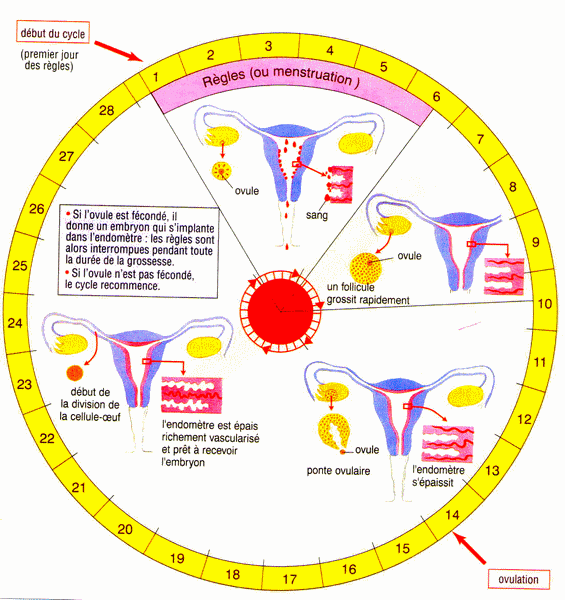 Are you seeing this symptom in yourself? Buy a test.
Are you seeing this symptom in yourself? Buy a test.
- You feel sick in the morning.
Anything can make you feel sick, including an increase in the concentration of hCG in the blood. This hormone increases during pregnancy. Take blood tests and take a pregnancy test. It will respond to changes in the composition of urine, even during lactation.
- The baby refuses to breastfeed.
When a new pregnancy occurs, the hormonal background changes. Because of this, the taste of breast milk changes, its consistency thickens and it becomes smaller. Therefore, your baby may refuse to take the breast, will be naughty and constantly demand to eat.
Pregnancy during lactation: pros and cons
Another baby in the family is a joy. You should be aware of the possible risks and positive aspects that a new pregnancy promises.
It is much easier to bring up children with the age of a few years than children with a difference in age of several years. They have a common daily routine, common interests and toys for two. It will be easier for you to adjust.
They have a common daily routine, common interests and toys for two. It will be easier for you to adjust.
Possible risks:
- It takes at least 2 years for a woman's body to fully recover after childbirth. A new child may simply not have enough resources for growth and development.
- If the delivery was by caesarean section, the uterus may not be ready. There is a risk of fetal death and irreversible consequences for the woman's health.
- Breastfeeding causes uterine contractions, which can cause miscarriage.
Keeping an unplanned pregnancy or not is entirely up to you. If the first pregnancy and first birth went without complications, it is quite possible to bear a healthy child.
Articles on the topic:
Nausea during pregnancy: why you feel sick and what to do about it
Sex during pregnancy
0006
More details
About period after childbirth | Clinic.
 kg
kg Menstruation after childbirth
June 30, 2019
A healthy pregnancy and delivery of a healthy baby is a reason for a woman to be proud of herself and her health. An important topic that worries many women after childbirth is menstruation: when to expect it, why the cycle is irregular, is it possible to get pregnant while breastfeeding, and much more. We will analyze the main issues in our article.
Postpartum discharge
Postpartum profuse discharge in a woman has nothing to do with menstruation - these are lochia, which become bloody from bloody, and then transparent, completely disappearing. After about two months, the uterus and ovaries return to their physiological state and size, which means that the onset of menstrual cycles with the maturation of eggs and menstruation is quite possible. Thus, a woman can expect her first menstruation from the 2-3rd month after childbirth.
When should my period start after childbirth?
This period depends on the type of feeding of the child: natural or artificial. Breast milk is produced under the influence of the pituitary hormone prolactin. The level of estrogen does not increase, therefore, when breastfeeding, menstruation begins, on average, 2 months after childbirth, more often when feeding “by the hour”. But there are times when some nursing women do not have periods for a year, and for some, they can recover in a month and a half after childbirth. On average, the onset of menstruation with breastfeeding varies from 3 months to six months.
How long do periods last after childbirth?
Often the first menstruation is quite heavy. There may be strong discharge, menstruation with blood clots. If you have to change the pad every hour, you should seek help from a doctor: this may be a symptom of bleeding that has begun.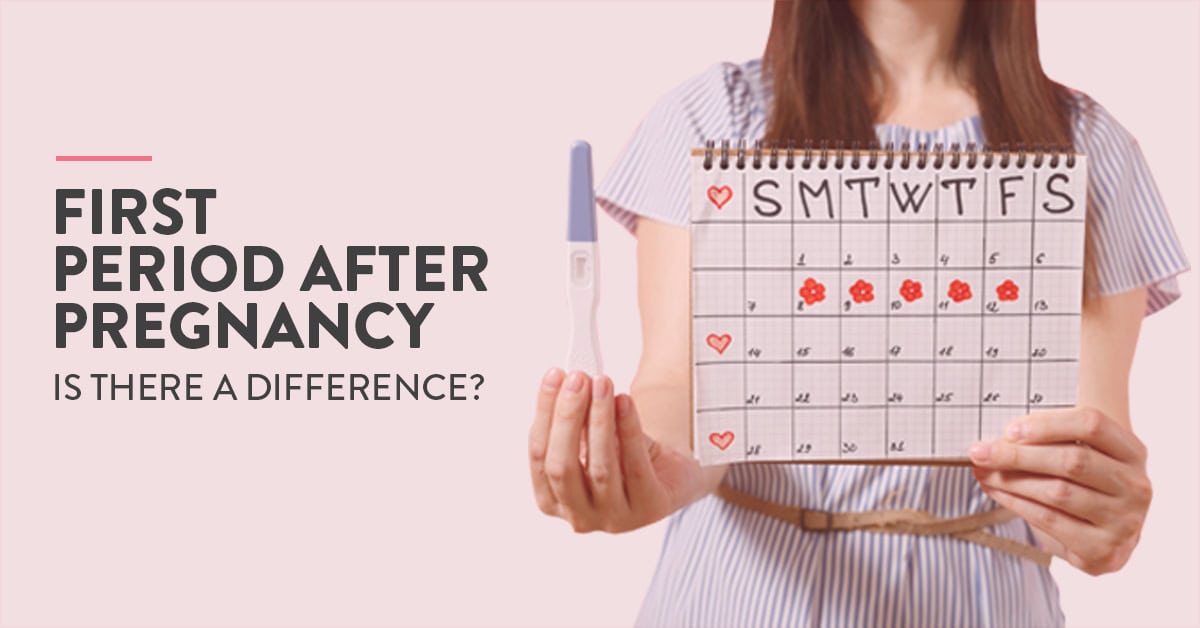 Subsequent periods usually become normal. In other cases, in the first months, women have irregular spotting. This is typical for breastfeeding, when prolactin synthesis gradually decreases.
Subsequent periods usually become normal. In other cases, in the first months, women have irregular spotting. This is typical for breastfeeding, when prolactin synthesis gradually decreases.
Reasons for the slow recovery of the regular cycle
Each woman has her own individual period for the restoration of the menstrual cycle. This is determined by the activity of the production of hormones of the sex glands, the pituitary gland, the state of the immune and reproductive systems as a whole. There are a number of reasons for this that affect the body in the postpartum period:
- features of the individual hormonal background;
- hereditary factors;
- nature of the birth process;
- peculiarities of uterine reconstruction.
What to do if the menstrual cycle has become irregular:
- In the first months of the postpartum recovery period, do not panic.
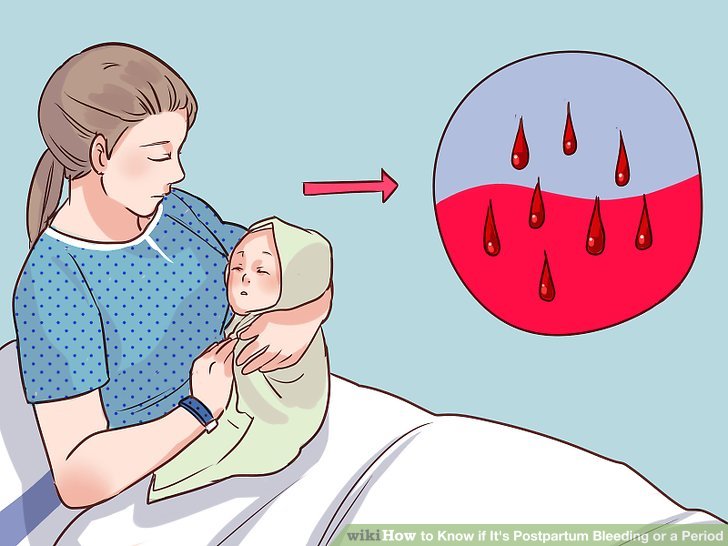 In most cases, this is the norm. For each woman, the normalization of the cycle occurs individually, usually during the first months of the resumption of menstrual bleeding. Irregularity is more common in nursing mothers.
In most cases, this is the norm. For each woman, the normalization of the cycle occurs individually, usually during the first months of the resumption of menstrual bleeding. Irregularity is more common in nursing mothers.
- It takes about 2 months to restore the normal function of all organs and systems. Balance in the endocrine system comes later, especially if breastfeeding is used. Therefore, a woman can feel completely healthy, but she will not have a period.
- Observe the irregular cycle only after 3 cycles. This may be due to an inflammatory process, endometriosis or a tumor of the genital organs. A delay in the second period is not dangerous, unless it is associated with a second pregnancy.
Menstruation after caesarean section
Menstruation after caesarean section is restored in the same way as after normal delivery. During lactation, periods do not come for six months. Against the background of artificial feeding from the maternity hospital due to the lack of nipple stimulation (which activates the synthesis of oxytocin, which contracts the uterus), recovery may be somewhat slower, plus there is still a scar on the uterus. Therefore, the restoration of menstrual function may occur a little later, for several weeks.
Against the background of artificial feeding from the maternity hospital due to the lack of nipple stimulation (which activates the synthesis of oxytocin, which contracts the uterus), recovery may be somewhat slower, plus there is still a scar on the uterus. Therefore, the restoration of menstrual function may occur a little later, for several weeks.
Cycle after a pathological course of pregnancy or childbirth
After termination of a missed pregnancy or abortion, the first menstruation occurs within 45 days. If this does not happen, the woman should seek help from a gynecologist. To exclude such causes of amenorrhea as the remaining part of the fetal egg in the uterus or inflammation, 10 days after the termination of a frozen or normal pregnancy, an ultrasound scan is necessary.
Pathologies of menstruation, what to pay attention to and immediately contact a specialist:
- Sudden cessation of postpartum discharge is a sign of a bending of the uterus or endometritis, accumulation of lochia in the uterine cavity - lochiometers.

- Scanty periods for 3 or more cycles. Perhaps they are a symptom of hormonal disorders, Sheehan's syndrome or endometritis.
- Irregularity of menstruation six months after its restoration, interval between spotting for more than 3 months. Most often associated with ovarian pathology.
- Excessive bleeding for 2 or more cycles, especially after a surgical delivery or abortion. They are often caused by the tissues of the membranes remaining on the walls of the uterus.
- The duration of menstruation is more than a week, which is accompanied by weakness, dizziness.
- Abdominal pain, fever, foul smell, discoloration of vaginal discharge - a sign of a tumor or infection.
- Spotting before and after menstruation is a likely symptom of endometriosis or an inflammatory disease.
- Itching in the vagina, an admixture of curdled discharge is a sign of thrush.
- Bleeding twice a month for more than 3 cycles.
Is it possible to get pregnant?
The most common myth is that a woman cannot get pregnant if she is breastfeeding a baby.
